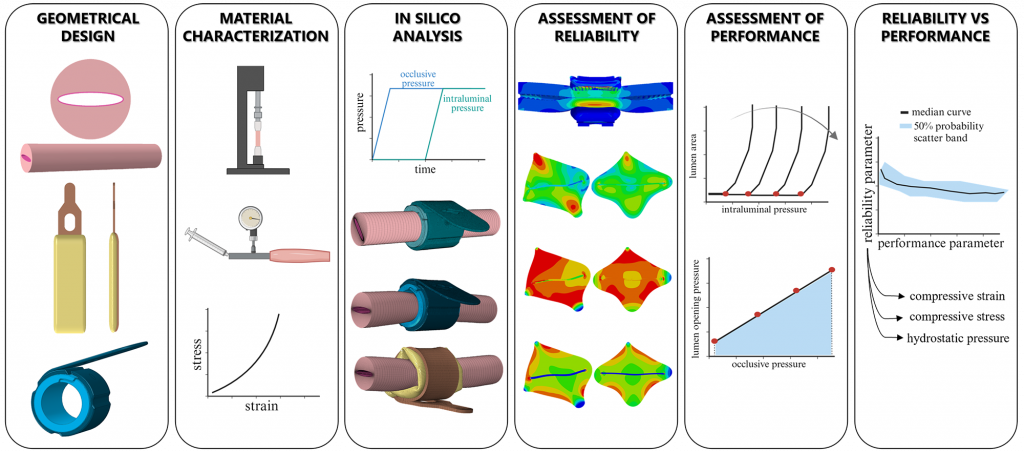
Artificial sphincters are implantable devices for the treatment of different pathologies, such as urinary incontinence, fecal incontinence and gastroesophageal reflux. The device exerts loading on the biological duct, providing for the required lumen occlusion. The ability of the apparatus to ensure occlusion can be used to evaluate its performance.
The mechanical action of the artificial sphincter often induces non-physiological stimulation of the tissues up to degenerative phenomena. Mechanical quantities that specify the tissue stimulation can be used to define the device’s reliability.
Aiming to contemporarily evaluate the artificial sphincter’s performance and reliability, an in silico procedure has been defined. The procedure entails different steps, from the developmentof the numerical models up to the analysis of the mechanical interaction between the tissue and the device, depending on the device geometrical and material features.
Details of the procedure are reported in the following paper:
For more information contact:
Emanuele Luigi Carniel
phone: +39 049 8276876
e-mail: emanueleluigi.carniel@unipd.it
Chiara Giulia Fontanella
phone: +39 049 8276754
e-mail: chiaragiulia.fontanella@unipd.it
Maria Vittoria Mascolini
e-mail: mariavittoria.mascolini@phd.unipd.it
Ilaria Toniolo
e-mail: ilaria.toniolo@unipd.it